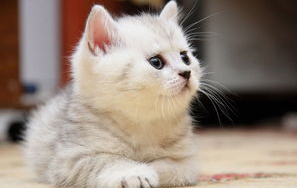The first point is to criticize immediately on the spot. When it does something it shouldn't do, it should immediately rebuke loudly. Of course, the cat did not stop acting because he listened to his owner's words, but just stopped acting because he was frightened when he heard a huge sound.

If you do this repeatedly, the cat will slowly feel that it will be scolded loudly if it does this, which is too headache, so it will never do it again. It is completely useless to take a cat to the crime scene to preach after it does something that shouldn't be done. Cats are forgetful animals. Even if they are scolded for what happened just now, they will not understand why they are scolded.

The second article is to educate patiently. It is not that criticism today can be allowed tomorrow, but that criticism should be patient with the same attitude at all times. If a person gives up halfway through, then the previous hard work will be in vain. In this way, the cat will be complacent.
Article 3: Corporate punishment must not be implemented. If you hit the cat casually, it will feel fear of its owner and then develop a humble personality. Because cats are much smaller than humans, they are likely to be injured if they are beaten.
The fourth article is to praise it greatly when it performs well. Although the cat cannot understand the owner's words, it is very clear about the difference between the voices of reprimand and the voices of praise. When a cat is praised, its mood will also improve, so the educational effect will gradually increase.